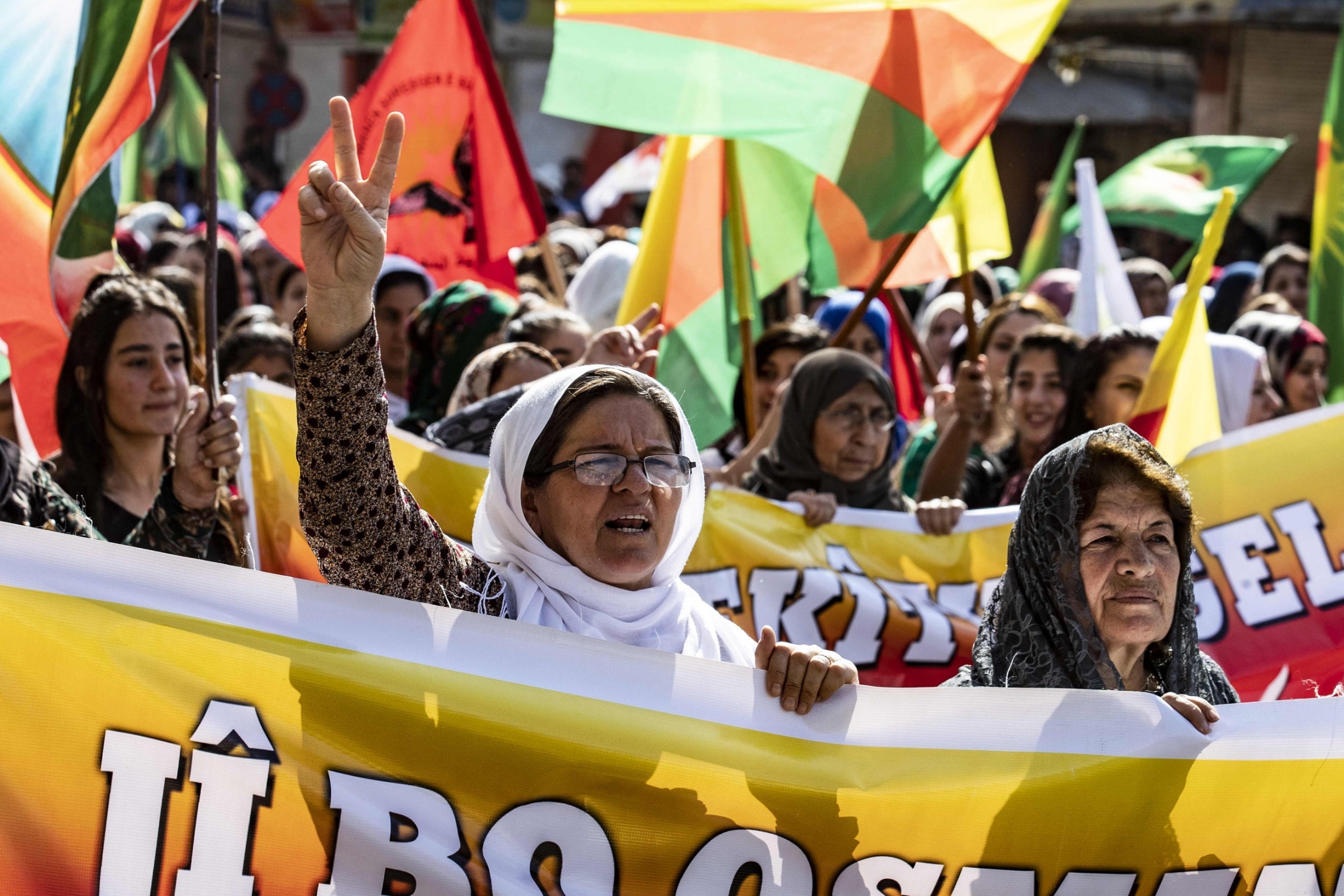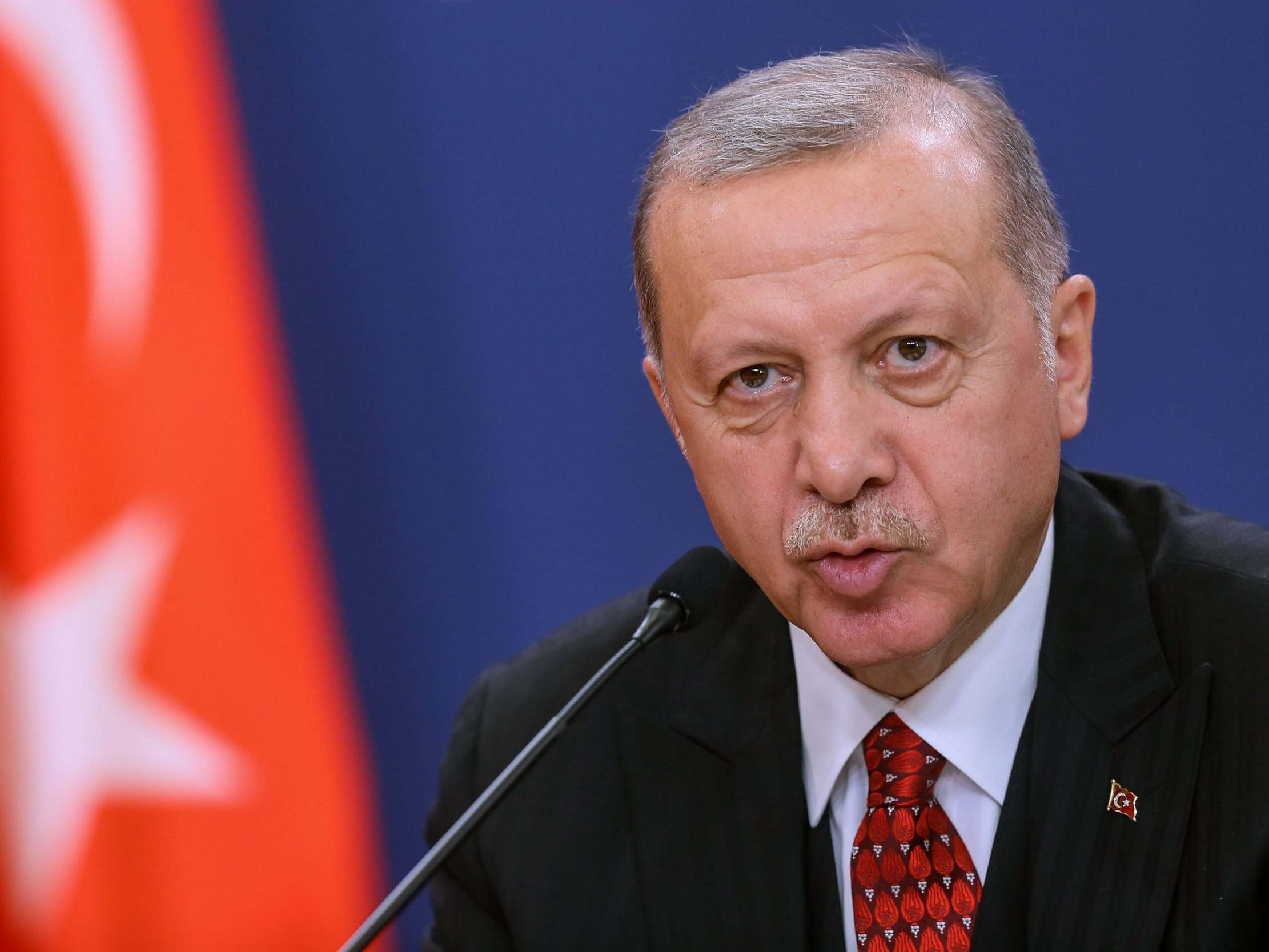‘Too big to handle’: Turkey invasion of Syria risks provoking ire from all sides
Analysis: Turkey hopes to snuff out Kurdish-led enclave it views as a threat to its security and territorial integrity. But the risks are many
Your support helps us to tell the story
From reproductive rights to climate change to Big Tech, The Independent is on the ground when the story is developing. Whether it's investigating the financials of Elon Musk's pro-Trump PAC or producing our latest documentary, 'The A Word', which shines a light on the American women fighting for reproductive rights, we know how important it is to parse out the facts from the messaging.
At such a critical moment in US history, we need reporters on the ground. Your donation allows us to keep sending journalists to speak to both sides of the story.
The Independent is trusted by Americans across the entire political spectrum. And unlike many other quality news outlets, we choose not to lock Americans out of our reporting and analysis with paywalls. We believe quality journalism should be available to everyone, paid for by those who can afford it.
Your support makes all the difference.Turkey’s political establishment appeared firmly behind a potentially risky military intervention into northern Syria after receiving the approval of the White House and a commitment to withdraw US troops from the Kurdish-run enclave.
Turkish troops and military vehicles were massed Monday along the Syrian border, poised to move in.
“The withdrawal of US troops in the region has begun,” Turkish president Recep Tayyip Erdogan told reporters on Monday. “You know we made a decision. We always say, we may come suddenly one night.”
If successful, the incursion could significantly expand a Turkish zone of influence already established in northern Syria, damaging prospects for the emergence of a Kurdish-run area that Ankara views as a threat to its security. It could also provide a space to vacate hundreds of thousands of Syrian refugees in Turkey that are increasingly proving a political burden on Mr Erdogan’s ruling Justice and Development Party.
But the risks for Turkey are also many. From the Saudi intervention in Yemen, to the Iranian role in Iraq, to the United Arab Emirates and Egypt’s backing for a warlord in Libya, the region is dotted with open-ended and expensive entanglements that end up backfiring.
Turkey is already fighting a guerilla war against the separatist Kurdistan Workers Party (PKK) in its own southeast provinces. Expanding the ground war into Syria against the PKK’s allies risks sparking a separate insurgency. The Syrian Democratic Forces, the collection of Kurdish-led armed groups partnered with the US in its fight against Isis, said it was “determined to defend our land at all costs” against Turkey.

“What makes Turkey think they’re not going to get caught in northern Syria fighting a protracted campaign?” said Steven Cook, a Turkey and Middle East specialist at the Council on Foreign Relations.
In addition, an incursion into northern Syria could incur the wrath of Isis remnants, and puts them potentially in charge of thousands of jihadis now being held in prisons or at a displaced persons camp near the desert village of al-Hol.
“If Turkey alone finds that there’s a resurgent Isis that’s too big to handle it could find itself in trouble,” said Matthew Bryza, a former US diplomat and White House official.
In any military incursion, Turkey may run up against a narrow but poorly defined margin of action sketched out by US officials. Hours after Mr Trump gave the green light, US Senator Lindsay Graham unveiled legislation that would punish Turkey if it attacks Kurdish forces partnered with American troops.
Mr Trump then warned on Twitter that “if Turkey does anything that I, in my great and unmatched wisdom, consider to be off limits, I will totally destroy and obliterate the economy of Turkey”.
The incursion also risks incurring the ire of the Syrian regime, and its allied Russian and Iranian backers. Moscow, Ankara, and Tehran are jointly negotiating Syria’s future, but remain wary of each other. While Russia and Iran support the regime of Bashar al-Assad, Turkey has long demanded he step down or share power with opposition groups it hosts.
“They’re really exposed going deeper into Syrian territory,” said Mr Cook. “And they’re not going to get any help. If Erdogan gets into trouble, the cavalry is not coming to the rescue.”
Turkish media outlets on Monday were filled with questions and worries about Mr Erdogan’s plans. Will the US allow Turkey to use Syrian airspace over the Kurdish enclave, one security analyst wondered. What’s the exit strategy?
“Isis is now our problem too,” one leftist journalist warned on Twitter.
What makes Turkey think they’re not going to get caught in northern Syria fighting a protracted campaign?
Turkish officials counter such worries by pointing to relatively successful Syrian enclaves under their control in northern Aleppo province and the northwest Afrin district. Turkey has handed control of those regions to Syrian partners backed by the rebel Free Syrian Army. In addition, it partners each Syrian locale with a neighbouring Turkish municipality which provides basic services such as medicine and education.
“Turkey and the Syrian opposition have proved they can establish security and stability in Syria if there are no outside attacks,” Omer Ozkizilcik, a Syria expert at the Turkish think tank SETA. “The previous operations in northern Aleppo and Afrin created environments that are relatively and at a low cost.”

Mr Bryza suggested that only about a quarter of Syria’s Kurds support the Kurdish-led administration in northeast Syria. Mr Ozkizilcik said that 500,000 Syrian Kurds are scattered throughout Turkey and Iraq, many of them eager to return home.
“If the Turks do this with a generosity of heart that goes beyond their strategic calculus, it could be successful,” said Mr Bryza.
Despite the risks of an incursion, many Turks across the political spectrum generally support military action over the possibility of the Kurdish state led by a PKK offshoot taking deeper hold in northern Syria.
“The other mess would be much worse,” said Mr Ozkizilcik. “The situation on the ground now is a great threat to Turkish national security and even to its territorial integrity.”

Join our commenting forum
Join thought-provoking conversations, follow other Independent readers and see their replies
Comments